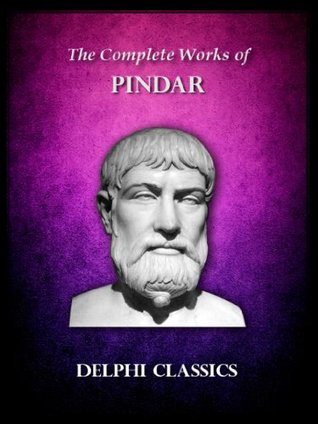Kindle Notes & Highlights
the games were predominantly aristocratic assemblies, reflecting the expense and leisure needed to attend such events,
The odes typically feature a grand and engaging opening, often with a famous mythological setting.
compound adjectives.
periphrases
err...
This highlight has been truncated due to consecutive passage length restrictions.
misle...
This highlight has been truncated due to consecutive passage length restrictions.
number of layers in the st...
This highlight has been truncated due to consecutive passage length restrictions.
often dig...
This highlight has been truncated due to consecutive passage length restrictions.
the event where the victory was gained is never described in detail,
a wreath of wild parsley.
earth-enfolding Poseidon
Identity of a god with the physical phenomenon he’s not only responsible for, but essentially is. This might b why gods were assumed to be immortal and unchanging, because their natural phenomena are perpetual, they too must be perpetual.
Vis a vis maybe deities which were patrons of cities which could be conquered, destroyed might’ve been seen as a lesser class of less than immortal; a city and its surrounding farms may be razed but the phenomenon of farming continues elsewhere, so the god of a city is limited, but the good of corn is forever
Likewise a certain body of water may dry up so it’s naiad died, but the hoy of the ocean is eternal
refrained their souls from all iniquity, travel the road of Zeus unto the tower of Kronos: there round the islands of the blest the Ocean-breezes blow, and golden flowers are glowing, some from the land on trees of splendour, and some the water feedeth, with wreaths whereof they entwine their hands: so ordereth Rhadamanthos’ just decree, whom at his own right hand hath ever the father Kronos, husband of Rhea, throned above all worlds8. Peleus
For Pindar’s ideas as to a future life see especially the fragments of his Dirges which remain to us. He seems to have been influenced by Pythagoreanism.
device, fitting to feet
Does this mean this ode was meant to accompany dance? It already accompanied music as it says the lyre, and that’s conducive to dance. Were the others too? Previously it mentioned a lute. Maybe only this one though bec it’s during a feast and for some reason that was conducive to dance, like a smaller and intimate group rather than an entire region gathered to celebrate a contest every four years.
fulfilling Herakles’ behests of old, hath laid upon one’s hair above his brows pale-gleaming glory of olive.
Attribution of the games and its rules to Heracles mythical to make them authoritative and important just as in an earlier ode Pindar attributed to the victor divine pedigree.
No. Now I see “that tree” refers to the above mentioned olive, as he reiterated below, it was a crown of greatness
the Hyperborean folk, who serve Apollo.
My dictionary says its a very northerly folk in a region beyond the north wind which enjoys a warm climate and plentiful produce.
I wonder what gave the idea of this myth.
Not atlantean Cyprus, which was to the south.
Maybe the powerful Persian invasion and Maybe Pindar didn’t understand where they were from
he halted and marvelled at the trees: and sweet desire thereof possessed him that he might plant them at the end of the course which the race-horses should run
Whom is this referring to? Is it theron the victor-host or is it some god in a myth, which would again lend authority to the game and its participants
Water be the Best6,
Pathless the things beyond, pathless alike to the unwise and the wise. Here I will search no more; the quest were vain.
Therons victory prize is already the best; nothing is better, and a search for more should be directed to no path, and such a search would be in vain, because therons prize is the best. Hurray!
six twin altars
the Muses shall not say me nay.
Hera was worshipped in her prenuptial as well as her postnuptial state.
It was a custom between correspondents who wished for secrecy to have duplicate [Greek: skutalai], or letter-sticks. The writer wrote on a roll wrapt round his stick, and the receiver of the letter read it wrapt similarly on his. And thus Aineas the bearer of this ode would teach the chorus of Stymphalians how rightly to sing and understand it. See [Greek: skutalae] in Dict. Ant.
I. e. of Stymphalos and Syracuse. Agesias was a citizen of both, and thus his two homes are compared to two anchors.


